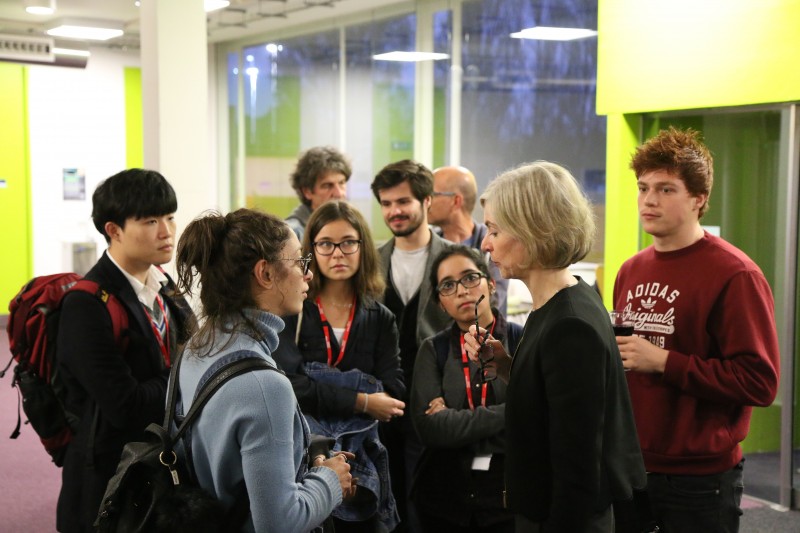By Helen Figueira
November 2, 2017
Time to read: 2 minutes
By Jake Jacobson
Professor Jennifer Doudna, co-discover of CRISPR-Cas9, visited the LMS on 19th October at the invitation of the LMS’s active Post-doctoral community. Professor Doudna is currently Professor of Chemistry and Molecular and Cell Biology at the Department of Chemistry and Chemical Engineering of the University of California, Berkeley. Her early work on ribozyme structure led to greater understanding of the chemistry of RNA function. However, a change in research direction, and a collaboration with Emmanuelle Charpentier of the Max Planck Institute for Infection Biology, led to the ground-breaking discovery of CRISPR-Cas9, the gene editing system that has changed the course of current molecular biology.

CRISPR-Cas9 is an RNA-guided DNA cutting mechanism which allows bacteria to recognise and remove parasitic viral DNA. Doudna and her colleagues realised quite early in their research that they had discovered a technique that could be reprogrammed to allow highly accurate gene editing in a whole range of organisms. ‘There was a Holy Moly moment’, she remembers. The technique was described in a 2012 Science paper and the scientific community realised very quickly how this technology would replace current gene editing techniques. CRISPR-Cas9 has subsequently been used to edit DNA in crop strains, yeasts, fish, mice, monkeys and human cell lines.
Professor Doudna’s seminar reprised her career and she described the steps that she and her colleagues took towards understanding the mechanism of Cas9 function. She concluded her lecture with a discussion of the bioethics of gene editing and the challenges that such fast moving science poses for government and regulatory bodies. Professor Doudna now spends a considerable portion of her time discussing the ethical implications of her discoveries and has called for a global pause in heritable gene editing in humans. She asks ‘How do we use a technology that could effectively give us the ability to control evolution?’.